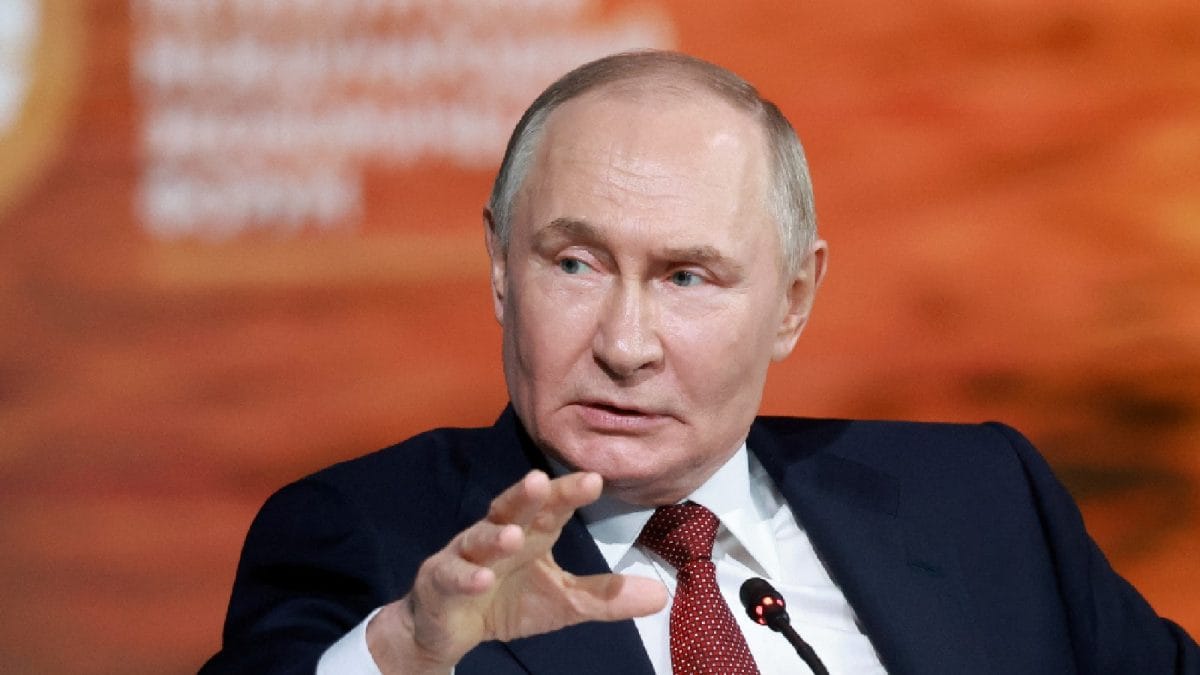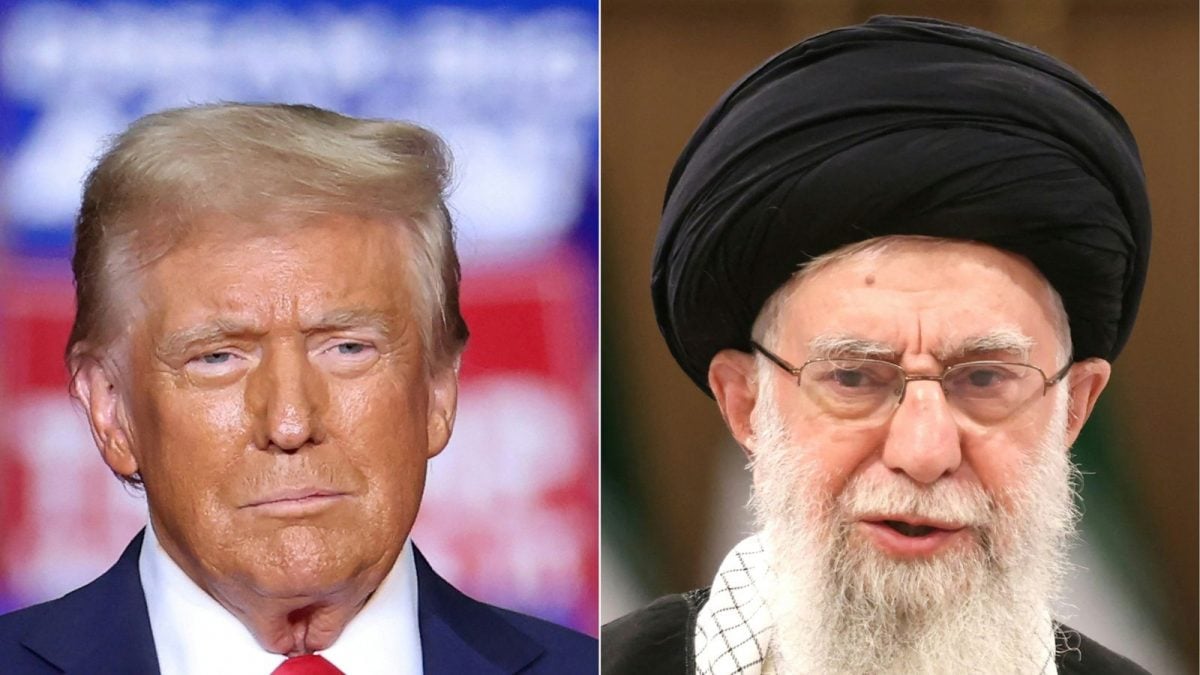ARTICLE AD BOX
Last Updated:June 21, 2025, 12:21 IST
Seen as a fresh face from a powerful dynasty, Paetongtarn Shinawatra took office in August 2024. Just months later, a 17-minute leaked call has pushed her premiership to the brink.

Thailand's Prime Minister Paetongtarn Shinawatra arrives to talk to reporters at Government house in Bangkok, Thailand, Thursday, June 19, 2025. (AP Photo)
In a country frequently rocked by coups and colour-coded protests, Thailand’s youngest-ever prime minister, Paetongtarn Shinawatra, was seen as a generational reset — a 38-year-old scion of one of the country’s most polarising political dynasties, stepping into office with promises of economic revival, social reconciliation, and pragmatic diplomacy.
But just months into her premiership, a 17-minute leaked phone call has triggered a political earthquake that may derail her fledgling government. With accusations of naïveté and betrayal swirling, Shinawatra now finds herself under intense scrutiny from the same military‑royalist forces that previously ousted her father and aunt.
A Shinawatra Heir With A Mandate To Heal
Paetongtarn Shinawatra is no ordinary politician. The youngest daughter of ousted former Prime Minister Thaksin Shinawatra, and niece of ex-PM Yingluck Shinawatra, her surname alone evokes sharp divides in Thai politics, adored by rural voters and the working class, reviled by the royalist elite and Bangkok’s conservative middle class.
Born on August 21, 1986, she graduated from Chulalongkorn University with a political science degree and later earned an MSc in International Hotel Management from the University of Surrey. Her early career was rooted in business, not politics. She served as an executive in her family’s real estate and aviation ventures. But her political debut was almost inevitable.
Her formal entry into politics came in 2021, when she became chief of the Pheu Thai party’s Inclusion and Innovation Advisory Committee. The appointment was widely seen as a soft launch for a political career crafted carefully behind the scenes.
In the 2023 general elections, the Pheu Thai Party ran on a platform promising economic stimulus, digital wallet schemes, and reconciliation, a far cry from the ideological battles of the past. Though it came second to the reformist Move Forward Party, Pheu Thai ultimately cobbled together a broad coalition after the Constitutional Court disqualified the leading party’s prime ministerial candidate.
Backed by a mix of conservative and centrist forces, Paetongtarn Shinawatra was nominated as prime minister in August 2024, becoming the country’s youngest to ever hold the office. To her supporters, she symbolised a pragmatic centre: young enough to promise change, but tied deeply to political experience through her lineage.
The Weight Of A Legacy
Paetongtarn’s ascent was historic, but also heavy with baggage. Her family’s past has shaped modern Thailand’s political landscape in seismic ways. Her father, Thaksin, a billionaire telecom tycoon-turned-populist leader, was ousted in a 2006 military coup and later convicted in absentia on corruption charges. Her aunt, Yingluck, followed a similar arc — elected with sweeping rural support in 2011, but ousted by a military-led constitutional court in 2014.
Though both remained popular in parts of the country, especially the northeast, they became symbols of a deep divide in Thai politics: between the rural majority that embraced their pro-poor policies, and an entrenched Bangkok elite aligned with the monarchy and military.
That legacy was both a strength and a liability for Paetongtarn. While it provided her with political machinery and loyal grassroots support, it also made her a lightning rod for suspicion among conservative forces. From day one, critics questioned whether she was her own person, or merely a proxy for her father’s return to influence.
What Brought Her To The Brink: The Leak, The Fallout, The Fears
The crisis that now threatens Paetongtarn’s government centres around a leaked 17-minute phone call with Cambodian Senate President and former PM Hun Sen. In the conversation, which surfaced online earlier this week, Paetongtarn was reportedly heard discussing efforts to de-escalate border tensions after a deadly May 28 skirmish in the Emerald Triangle region, a volatile area where Thailand, Cambodia, and Laos meet.
One Cambodian soldier had been killed in the clash. While a private negotiation between heads of state isn’t in itself scandalous, what set off alarm bells was the tone of the call. Paetongtarn referred to Hun Sen, a longtime political ally of her father, as “Uncle", and labelled a Thai military officer as an “opponent".
In a country where the military is not only an institution but a political stakeholder, such language was incendiary. To the nationalist right, it signalled undue deference to a historical rival and disrespect to Thailand’s own armed forces. The fact that Hun Sen reportedly shared the audio with over 80 Cambodian officials before uploading it to Facebook only worsened perceptions, casting Paetongtarn as diplomatically naïve and politically vulnerable.
On Thursday, the crisis deepened. The Bhumjaithai Party, the second-largest member of the ruling coalition, withdrew its support, accusing the prime minister of compromising national sovereignty and damaging military morale. This sudden exit slashed the government’s strength to a precarious 255 seats in the 500-member House of Representatives.
Opposition leader Natthaphong Ruengpanyawut of the People’s Party called the leak “the final straw," demanding dissolution of Parliament and fresh elections. Protests also erupted outside Government House, and impeachment threats surfaced in the Senate. Several senators have reportedly initiated steps to file a formal no-confidence motion.
Although Paetongtarn has issued a public apology and insisted the comments were part of a “de-escalation strategy", it appears her words, and the fallout from them, have struck a deeper nerve. Her decision to end private communications with Hun Sen and accuse the Cambodian leader of playing to domestic politics has done little to quell the storm.
History Repeats Itself?
Thailand has experienced around 13 successful military coups since 1932, and its armed forces remain a deeply entrenched force in national politics. While the current military leadership, which continues to wield significant influence behind the scenes, has so far exercised restraint, a rare statement issued by the Royal Thai Army on Thursday, reaffirming its commitment to “protecting national sovereignty through legal frameworks," has been interpreted by analysts as a subtle warning.
The statement was widely viewed as a reminder of the army’s institutional authority and its historical willingness to intervene during periods of political instability.
What’s Next For Paetongtarn?
With her coalition reduced to a slim majority, a fracturing agenda, and public trust eroding, Shinawatra’s political brinkmanship is at a tipping point. According to Reuters, her immediate priorities include restoring sovereignty, stitching together a shaky coalition, managing dissent within Pheu Thai and allied parties, and avoiding military intervention, all while retaining a calm, authoritative image.
In a nation where perception often matters as much as policy, how she handles this moment may define her entire political career.

Karishma Jain, Chief Sub Editor at News18.com, writes and edits opinion pieces on a variety of subjects, including Indian politics and policy, culture and the arts, technology and social change. Follow her @kar...Read More
Karishma Jain, Chief Sub Editor at News18.com, writes and edits opinion pieces on a variety of subjects, including Indian politics and policy, culture and the arts, technology and social change. Follow her @kar...
Read More
- Location :
- First Published:
News explainers Who Is Thailand’s Youngest PM Paetongtarn Shinawatra And What’s Triggering Her Political Downfall?



.png)
.png)
.png)
















 3 hours ago
3
3 hours ago
3









 English (US) ·
English (US) ·